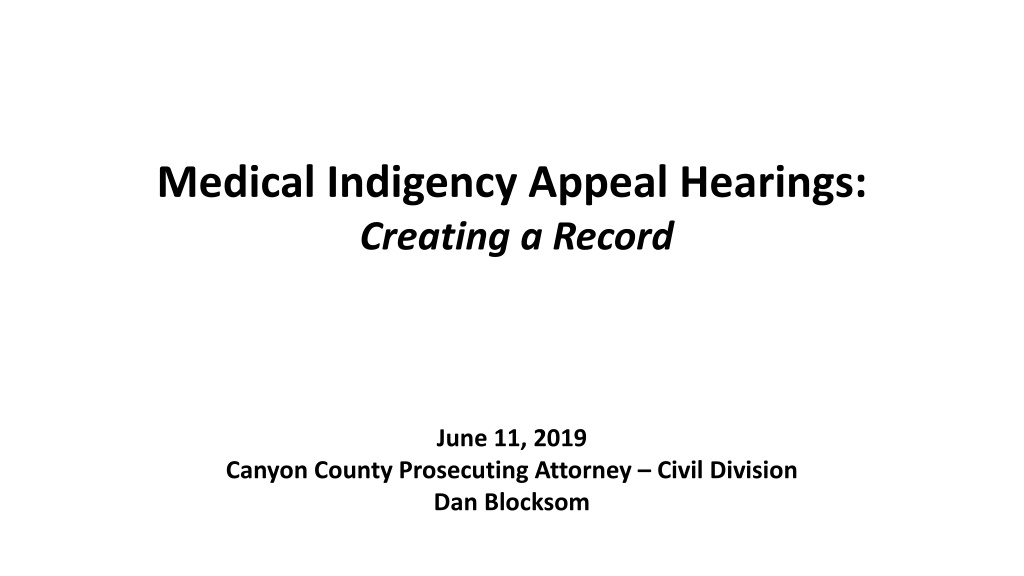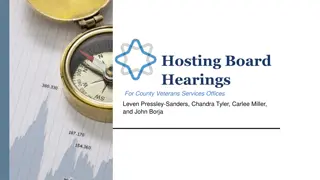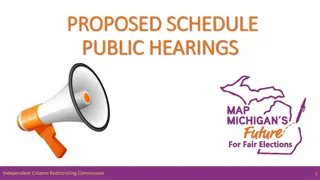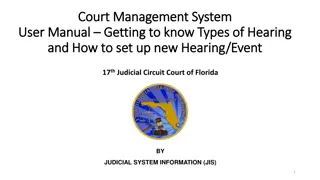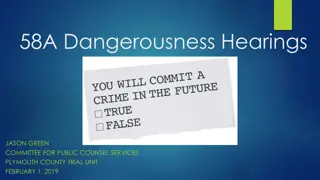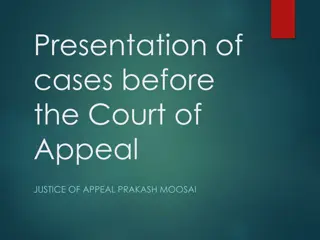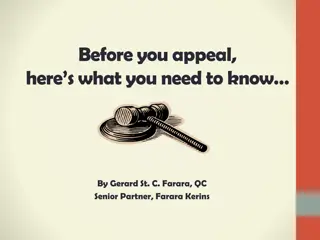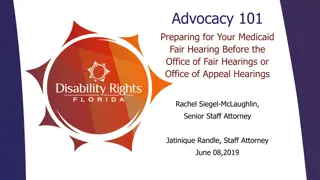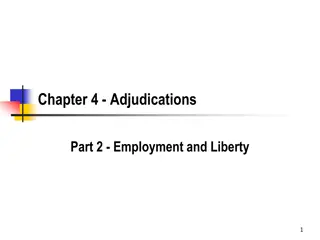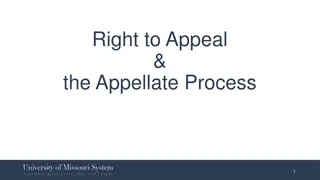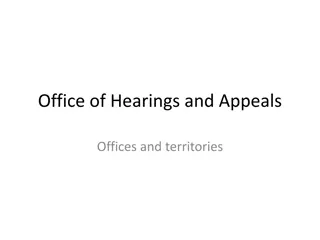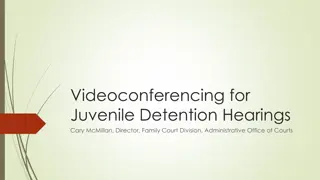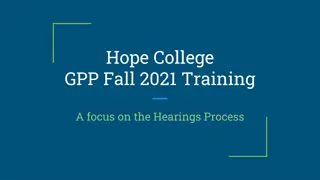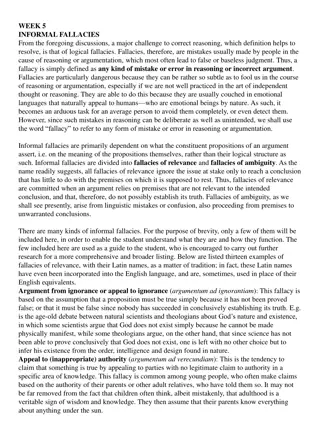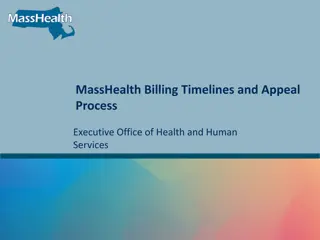Understanding Medical Indigency Appeal Hearings
Explore the process of creating a strong record for judicial review at Medical Indigency Appeal Hearings, covering eligibility criteria, roles at hearings, and practical tips. The presentation emphasizes the importance of building a solid case for review and consultation with an attorney for specific advice.
Download Presentation

Please find below an Image/Link to download the presentation.
The content on the website is provided AS IS for your information and personal use only. It may not be sold, licensed, or shared on other websites without obtaining consent from the author. Download presentation by click this link. If you encounter any issues during the download, it is possible that the publisher has removed the file from their server.
E N D
Presentation Transcript
Medical Indigency Appeal Hearings: Creating a Record June 11, 2019 Canyon County Prosecuting Attorney Civil Division Dan Blocksom
WARNING I m not your attorney. Today s presentation and materials are not intended as legal advice. Today s presentation and materials are not an exhaustive review of every possible situation. CONSULT AN ATTORNEY for advice specific to your situation.
Todays objective To learn how to build a strong record for judicial review.
Todays agenda Eligibility criteria Roles at a hearing The judge s perspective Tips to avoid being overturned Issue-spotting practice
Todays handout Front takeaways from today Back case summary sheet
Eligibility criteria: The Big Three 1. Residency / obligated county Six months in the last five years 30 days prior to incident
Eligibility criteria: The Big Three 2. Medical indigency The patient s ability to pay off the bill within 60 months, given his income and expenses
Eligibility criteria: The Big Three 3. Medically necessary
Eligibility criteria: The Minutiae 4. Timing of application 5. Complete application, complete information* In the weeds *County has additional hurdles to clear to prevail on a denial on these grounds.
Roles at the hearing Clerk: - To serve as the neutral investigator of the case - To present evidence to the Board Applicant (hospital or patient): - To present evidence to the Board Board: - To determine the facts - To apply the law to the facts - To build a record
The judges perspective QUALITY OF EVIDENCE Corroboration Conflict Credibility Level 2 EVIDENCE Sworn testimony Exhibits, documentation, records Pictures, videos Level 1
The judges perspective (contd) Reasons why a court will overturn the Board s decision: Violated the law. Exceeded the Board s authority. Was based on unlawful procedure. Was not based on the record or was not reasonable.* *This is the most likely in the MI hearing context.
Tips to avoid being overturned 1.Review the materials. 2.Ask questions. 3.Explain the reasoning for your decision. 4.Consider setting out for Clerk s Office to follow-up.
Hypo #1: Sally, age 50, single Bill: $27k appendicitis ($450/month). Income: $9/hr for 20 hours a week = $780/month. Expenses: $3000/month worth of expenses (utilities, food, car insurance, gas), but no documentation. Sally lives with her boyfriend, and two adult children. Medical review: All medical services were emergent and necessary. Residency: The application says that Sally lived in the county for the last three years. The Clerk s office sent a rent verification form to Sally s landlord, no response.
Hypo #2: Bob, 37, married but separated Bill: $60k broken ankle ($1,000/month). Part A: stabilization, cost $10k ($166/month). Part B: surgery a month later, cost $50k ($833/month). Income: $15/hr for 40hrs/wk = $2,600/month. Expenses: Wife and two minor child live across town. Pays $1,500/month towards his wife s expenses. Didn t list any expenses other than his wife s expenses. Medical review: Part A was medically necessary and emergent. Part B should have been on a 10-day prior app. Residency: Bob is a county resident.
